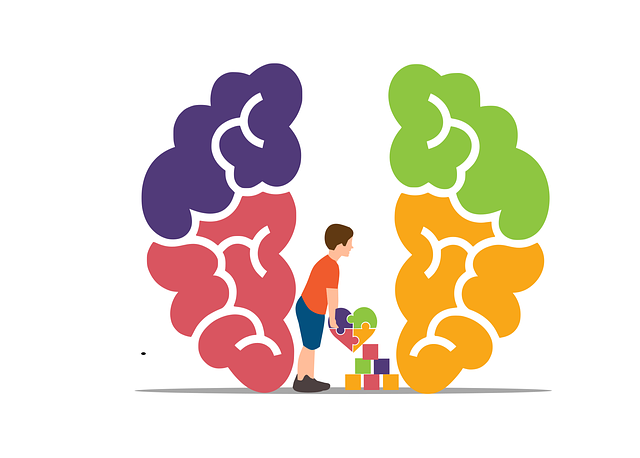Mood regulation is a key developmental milestone for young children, addressed through early intervention therapies and family counseling. These approaches teach healthy emotional coping strategies by identifying triggers, understanding feelings, and developing adaptive responses. Mindfulness principles from the Mental Wellness Podcast Series empower children to reframe negative thoughts and maintain equanimity in challenges. Risk Management Planning ensures tailored interventions for mental health professionals working with young clients. Family counseling creates structured environments and routines, enhancing resilience for both children and parents. Integrating mindfulness meditation and inner strength development, this holistic approach significantly improves the mental well-being of young clients by creating a calm home environment through consistent routines, open communication, and safe spaces for emotional expression.
Mood regulation is a vital skill for young children to develop, and early intervention through therapy can significantly impact their emotional well-being. This article explores effective strategies to support children in managing their moods, focusing on family counseling as a powerful tool. We’ll delve into how counselors teach parents practical techniques to foster healthy emotional development in their young ones. By combining professional guidance with daily implementation at home, these strategies can revolutionize mood regulation for kids.
- Understanding Mood Regulation in Young Children
- The Role of Family Counseling in Teaching Mood Management Skills
- Practical Strategies for Daily Implementation at Home
Understanding Mood Regulation in Young Children

Understanding Mood Regulation in Young Children
Mood regulation is a crucial aspect of development for young children, who are still forming their emotional intelligence and coping mechanisms. In the dynamic environment of childhood, where experiences are diverse and intense, learning to manage moods effectively can significantly impact a child’s overall mental wellness. Early intervention through therapy for young children and family counseling plays a pivotal role in teaching them healthy strategies to deal with emotions. This process involves identifying triggers, understanding feelings, and developing adaptive responses—skills that will serve them well throughout their lives.
The Mental Wellness Podcast Series Production often highlights the importance of these foundational steps in fostering mental resilience. Mind Over Matter Principles, as discussed in these podcasts, emphasize the power of conscious thought and behavior modification. By teaching children to recognize and reframe negative thoughts, professionals can help them navigate challenging situations with more equanimity. Additionally, Risk Management Planning for Mental Health Professionals is essential when working with young clients, ensuring that interventions are tailored to each child’s unique needs while minimizing potential risks.
The Role of Family Counseling in Teaching Mood Management Skills

Family counseling plays a pivotal role in teaching young children essential mood management skills. Through interactive and supportive sessions, therapists facilitate open communication, helping children identify and express their emotions effectively. This process not only strengthens family bonds but also equips parents with strategies to navigate their child’s emotional landscape. By integrating techniques such as mindfulness meditation and inner strength development, therapy for young children becomes a holistic approach to risk management planning for mental health professionals.
In these counseling sessions, families learn to create structured environments that foster healthy emotional regulation. Therapists guide them in establishing routines, setting boundaries, and responding constructively to challenging behaviors. This proactive approach empowers both children and parents, enabling them to build resilience and cope with life’s ups and downs more effectively. By combining family counseling with evidence-based practices, mental health professionals can significantly enhance the well-being of their young clients.
Practical Strategies for Daily Implementation at Home

Creating a calm home environment can significantly aid young children in regulating their moods and managing emotions. Family counseling sessions can offer valuable tools for parents to implement daily. One practical strategy is establishing consistent routines, such as set bedtimes and meal times. These routines provide structure, which helps children feel secure and in control, fostering positive thinking and emotional regulation.
Encouraging open communication and active listening is another effective approach. Create safe spaces where children can express their feelings freely. Through family counseling, parents can learn coping skills development techniques to help their kids identify and manage emotions. Simple activities like deep breathing exercises or mindful coloring can be integrated into daily routines to promote emotional awareness and healthy coping mechanisms.
Mood regulation is a vital skill for young children to develop, and with appropriate strategies, parents can effectively support this process. By combining understanding and practical techniques, such as family counseling and daily implementation at home, parents can help their children manage emotions healthily. These strategies not only benefit the child but also strengthen family dynamics through improved communication and connection. Therapy for young children doesn’t have to be complex; simple, consistent practices can lead to significant positive changes.














